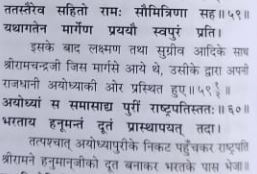The first sentence taught in Sanskrit by the Chair of World Sanskrit Conference (2021)
The Chair of the World Sanskrit Conference (2021), Professor McComas Taylor, can be heard saying the following in this podcast (between ~15:14 and ~16:00): Audio source . Image source . "...the demon in the form of a deer. And this is a very very famous incident wherever you are, all the way throughout the Indic world you will see images of this golden deer passing by the hut. It is very famous image. So, the golden deer passes the hut. Sītā, of course, sees the deer. And do you know how in French, the first sentence you learn is, is the pen of my aunt is on the table. In Sanskrit, the first sentence I teach is सीता मिरगं इचति[1]. Sītā desires the deer. We always say that. We always start with it. Nice easy sentence. You can say this: सीता मिरगं इचति. Everyone please: सीता मिरगं इचति (laughter). Really g ood." [1] It is my guess that what was intended was perhaps सीता मृगं इच्छति Quick points: 1. I could not find ...

